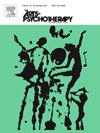The role of puppetry in mental health promotion: A scoping review of its efficacy and applications
IF 1.5
3区 心理学
Q3 PSYCHOLOGY, CLINICAL
引用次数: 0
Abstract
Puppetry-based interventions have gained recognition as a potential tool in therapeutic, educational, and social contexts, offering unique benefits in emotional expression, anxiety reduction, and social skills development, thereby contributing to mental health promotion. This review aims to bridge the gap between practice and theory, providing a comprehensive understanding of the role of puppetry in therapeutic and educational settings for promoting mental health. A scoping review was conducted using the PICOS framework and PRISMA-ScR guidelines, examining studies across 16 databases up to August 2024. This review evaluated 30 studies to assess the effectiveness of puppetry-based interventions across diverse populations, including children, adolescents, and vulnerable groups such as refugees and the elderly. The findings demonstrate significant improvements in emotional regulation, anxiety management, and social interaction, particularly in pediatric and educational settings. However, the review also identifies critical gaps in the literature, including the limited use of large-scale randomized controlled trials, a scarcity of longitudinal studies, and inconsistent application of theoretical frameworks. These gaps highlight the need for more rigorous and theoretically grounded research to fully optimize the benefits of puppetry-based interventions. This review consolidates existing evidence and offers a roadmap for future research, emphasizing the importance of standardized protocols and long-term outcome evaluations. The findings contribute to the growing recognition of puppetry as a valuable tool in therapeutic and educational practices, offering insights into how these interventions can be effectively tailored to meet the needs of diverse populations.
木偶戏在心理健康促进中的作用:对其功效和应用的范围审查
基于木偶戏的干预措施已被公认为是治疗、教育和社会背景下的潜在工具,在情感表达、减少焦虑和社交技能发展方面提供独特的益处,从而有助于促进心理健康。本综述旨在弥合实践与理论之间的差距,全面了解木偶戏在促进心理健康的治疗和教育环境中的作用。使用PICOS框架和PRISMA-ScR指南进行了范围审查,审查了截至2024年8月16个数据库的研究。本综述评估了30项研究,以评估基于木偶的干预措施在不同人群中的有效性,包括儿童、青少年和弱势群体,如难民和老年人。研究结果表明,在情绪调节、焦虑管理和社会互动方面,特别是在儿科和教育环境中,有显著的改善。然而,该综述也发现了文献中的关键空白,包括大规模随机对照试验的有限使用,纵向研究的缺乏以及理论框架的不一致应用。这些差距突出表明,需要进行更严格和有理论基础的研究,以充分优化基于木偶的干预措施的好处。这篇综述巩固了现有的证据,并为未来的研究提供了路线图,强调了标准化方案和长期结果评估的重要性。这些发现有助于人们日益认识到木偶戏在治疗和教育实践中是一种有价值的工具,并为如何有效地定制这些干预措施以满足不同人群的需求提供了见解。
本文章由计算机程序翻译,如有差异,请以英文原文为准。
求助全文
约1分钟内获得全文
求助全文
来源期刊

Arts in Psychotherapy
Multiple-
CiteScore
3.20
自引率
11.10%
发文量
66
期刊介绍:
The Arts in Psychotherapy is a dynamic, contemporary journal publishing evidence-based research, expert opinion, theoretical positions, and case material on a wide range of topics intersecting the fields of mental health and creative arts therapies. It is an international peer-reviewed journal publishing 5 issues annually. Papers are welcomed from researchers and practitioners in the fields of art, dance/movement, drama, music, and poetry psychotherapy, as well as expressive and creative arts therapy, neuroscience, psychiatry, education, allied health, and psychology that aim to engage high level theoretical concepts with the rigor of professional practice. The journal welcomes contributions that present new and emergent knowledge about the role of the arts in healthcare, and engage a critical discourse relevant to an international readership that can inform the development of new services and the refinement of existing policies and practices. There is no restriction on research methods and review papers are welcome. From time to time the journal publishes special issues on topics warranting a distinctive focus relevant to the stated goals and scope of the publication.
 求助内容:
求助内容: 应助结果提醒方式:
应助结果提醒方式:


